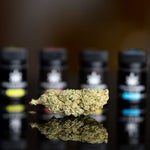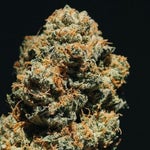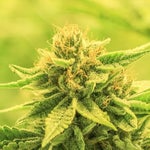Marijuana in Hollywood: How Weed Disrupts the Film Industry
Marijuana has been a cultural phenomenon for decades, and Hollywood has enjoyed its share of weed-related movies. Films like “Dazed and Confused,” “Half Baked,” and “Pineapple Express” have become cult classics, depicting the highs and lows of marijuana use. While marijuana is usually portrayed as fun and harmless, the film industry has had to navigate the complexities of promoting drug use while adhering to censorship laws.
However, weed’s representation in movies is not always positive. The 1936 film “Reefer Madness” portrayed marijuana as a dangerous drug that drove users to madness and murder. The film is now considered a joke, but it was once used as propaganda to push for the prohibition of marijuana. Thus, the film industry’s relationship with weed is complicated, and the portrayal of the drug on the big screen continues to evolve.
The Good and the Bad of Marijuana on Film
Hollywood’s use of marijuana in movies can be viewed from two sides: the good and the bad. On one hand, movies that depict marijuana in a positive light can be seen as promoting the drug’s use. On the other hand, movies that depict marijuana in a negative light can be seen as perpetrating false stereotypes and misinformation.
Movies like “Cheech and Chong’s Up in Smoke” and “Harold and Kumar Go to White Castle” present marijuana as a harmless drug that can bring people together, while movies like “Traffic” and “Blow” depict the drug as a gateway to harder drugs and criminal activity. The portrayal of marijuana on film continues to be a topic of debate, but one thing is clear: weed has captured the attention of Hollywood and pop culture.
The Future of Marijuana in Movies
As marijuana legalization continues to spread across the United States, Hollywood has the opportunity to explore new narratives related to weed. Films like “The Gentlemen” and “The Big Lebowski” showcase the drug’s role in underground markets and the lives of everyday people. Additionally, documentaries like “Grass is Greener” and “The Culture High” expose the racial disparities and social injustices tied to marijuana prohibition.
As Hollywood continues to showcase marijuana on the big screen, it will be interesting to see how the drug’s portrayal evolves. Will weed consumption become more normalized in film or will it continue to be seen as a taboo practice? Only time will tell.
Marijuana in Music: How Weed Became a Staple in the Music Industry
Marijuana has long been intertwined with the music industry, with artists like Bob Marley and Snoop Dogg becoming synonymous with the drug. Numerous musicians have made weed a staple in their music, referencing it in lyrics and using it to enhance their creativity. Marijuana’s influence on the music industry has been significant, and it continues to shape the sound and culture of music today.
The Relationship between Marijuana and Music
Marijuana’s relationship with music is one that has existed for decades. The drug has been used as a tool to enhance creativity, with many artists citing its influence on their work. For example, Bob Marley was known to smoke weed before recording music, using the drug to help him focus and stay relaxed. Similarly, Jimi Hendrix was a prolific user of marijuana and often cited the drug as an inspiration for his music.
Marijuana has also played a role in shaping specific genres of music. Reggae and hip hop, in particular, have deep roots in marijuana culture. Reggae music, which originated in Jamaica, often includes references to marijuana use, with artists like Peter Tosh and Burning Spear singing about the drug’s spiritual and healing properties. Similarly, hip hop music, which originated in New York City, has long been associated with marijuana culture, with artists like Snoop Dogg and Wiz Khalifa using the drug as a symbol of their identity.
The Future of Marijuana in Music
As marijuana becomes more mainstream, it will be interesting to see how the drug’s influence on music evolves. Some artists may choose to move away from the drug as it becomes more accepted, while others may continue to embrace it as a part of their identity. Regardless of the future, it is clear that marijuana has had a significant impact on the music industry, shaping the sound and culture of music for decades to come.
The Role of Marijuana in Social Justice Movements
As marijuana legalization continues to spread across the United States, it is important to recognize the drug’s history and its impact on social justice movements. Marijuana has been used as a tool to oppress marginalized communities, particularly communities of color. The criminalization of marijuana has been used to justify the mass incarceration of Black and Brown people, perpetuating the systemic racism that plagues our society.
The Racial Disparities of Marijuana Prohibition
Marijuana prohibition has had a disproportionate impact on communities of color. Despite similar usage rates among races, Black people are nearly four times more likely to be arrested for marijuana possession than white people. This has led to a cycle of poverty and incarceration, with Black and Brown people being targeted and criminalized for something that is now legal in many parts of the country.
As the conversation around marijuana legalization continues, it is important to consider the impact of marijuana prohibition on marginalized communities. Legalization alone is not enough to address the systemic racism that has been perpetuated by the war on drugs. We must also work to repair the harm done to those who have been disproportionately affected by marijuana prohibition.
The Intersection of Marijuana and Social Justice Movements
Marijuana legalization and social justice movements are intimately connected. The fight for marijuana legalization is, in many ways, a fight for racial justice. In order to create a just and equitable society, we must address the systemic racism that has been perpetuated by the criminalization of marijuana. This requires us to not only legalize marijuana but also to release those who have been unjustly incarcerated for marijuana-related offenses.
The intersection of marijuana and social justice movements is an important conversation that must be had as we continue to push for legalization across the country. We must work to ensure that legalization is done in a just and equitable manner, with a focus on repairing the harm done to those who have been disproportionately affected by marijuana prohibition.












